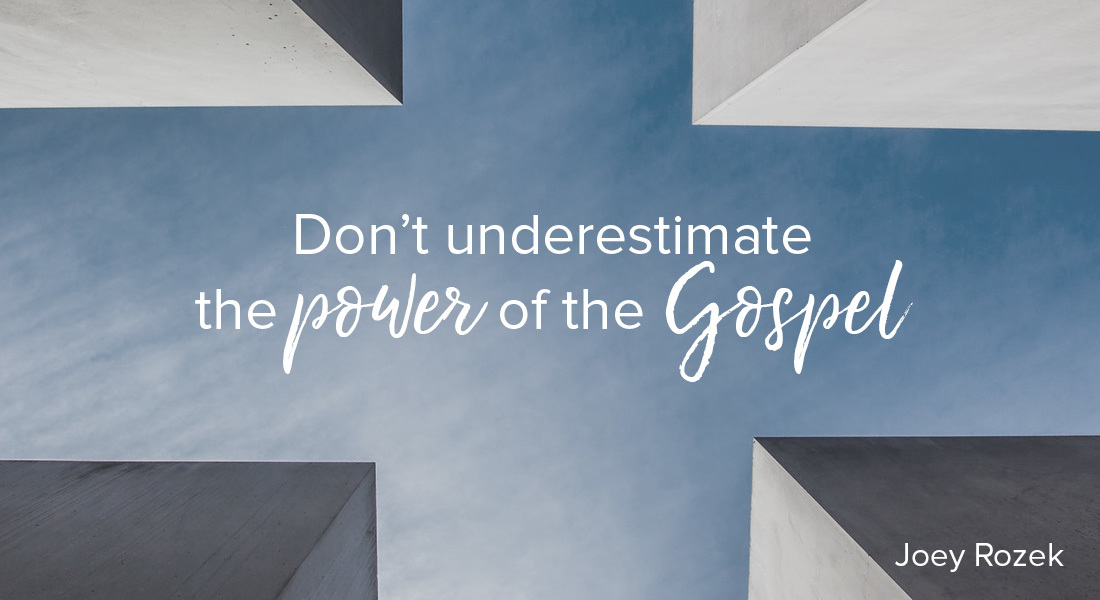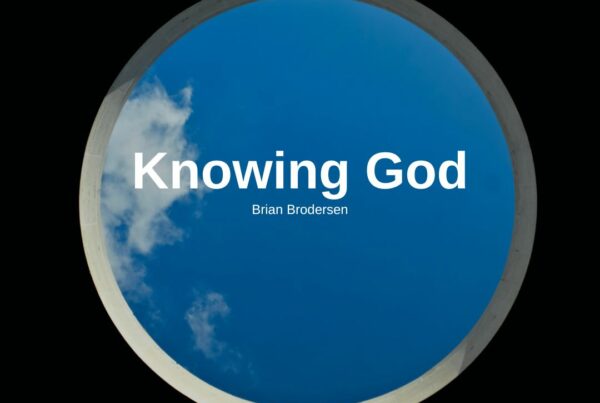
The Gospel is the “good news” concerning who Christ is and what He has accomplished. It is the power of God to redeem sinful humanity, replace the sinner, remove the sin, release the bondage, reverse the curse and reconcile man to God. When we proclaim the Gospel, we are actually telling Christ’s personal testimony about His birth, life, death, burial, resurrection and ascension.
O, how glorious is this gospel…and yet, how easy it is to underestimate the full extent of its power!
Perhaps, we would do well to consider what actually happens in the spiritual realm when the Gospel is shared and lives are set free.
When Jesus preached His own Gospel to His disciples, Satan immediately overtook Peter in getting him to rebuke the Lord saying, “Far be it from You Lord; this shall not happen to you!” Then Jesus immediately came back with a firm response of His own, “Get behind Me, Satan! You are an offense to Me, for you are not mindful of the things of God, but the things of men” (Matthew 16:22-23, NKJV).
Do you see how quickly Satan reacted upon hearing Christ proclaim His own death and resurrection? Have you ever experienced this kind of opposition? Where do you put your trust today? Are you more focused on the temporal than the eternal and more mindful of human remedies over God’s remedy?
The idea of God coming down to sacrificially give His life for us in order to solve our deep spiritual condition by absorbing the punishment we deserve sounds too good to be true. However, if one’s Jewish expectation cannot grasp the idea that the Messiah needed to suffer for us before reigning over us, it can seem like nonsense.
Or if one’s secular worldview esteems man’s accomplishments over God’s accomplishments, the gospel can easily become an intellectual offense.
This is why Paul says, “For the message of the cross is foolishness to those who are perishing, but to us who are being saved it is the power of God… to the Jews a stumbling block and to the Greeks foolishness, but to those who are called, both Jews and Greeks, Christ the power of God and the wisdom of God” (1 Corinthians 1:18,23-24).
According to the Gospel accounts in Mark and Luke, the first time Jesus casted out an evil spirit was not among unrighteous heathen or a company of sinners but within a religious synagogue in Capernaum where there was an affinity to God’s laws and ordinances. It was here that a man with an unclean spirit cried out, “Let us alone! What have we to do with you Jesus of Nazareth? Did you come to destroy us? I know who You are – the Holy One of God!” (Mark 1:24).
As I considered this passage recently, the Lord renewed my mind to see some powerful insights concerning the glorious gospel of Christ:
First of all, the Gospel engages the divide of two spiritual kingdoms and brings with it the power to deliver someone out of darkness, to loosen Satan’s grip on their life and to enable them to experience Christ’s love and forgiveness. Paul declares this in his letter to the church in Colosse: “He has delivered us from the power of darkness and conveyed us into the kingdom of the Son of His love, in whom we have redemption through His blood, the forgiveness of sins” (Colossians 1:13-14).
Furthermore, evil spirits always see things as they really are even if they do not want to come under the authority of Christ. Unlike the religious crowd that was gathered together, the evil spirits knew exactly who Jesus was and what He was capable of doing. “I know who you are – the Holy One of God!” – seeing Him as a threat to their agenda.
We see a similar response when an evil spirit answered the seven sons of a chief priest who tried to exorcise demons in Christ’s name saying, “Jesus I know, and Paul I know; but who are you?” (Acts 19:15).
It was only when Paul was freed from the blindness of his own religious zeal and was graciously converted by the risen Christ that he became a threat to the kingdom of darkness and came to understand what the evil spirits already knew. His conversion story confirms that Jesus can change anyone “…From darkness to light, and from the power of Satan to God, that they may receive forgiveness of sins and an inheritance among those who are sanctified by faith in Me” (Acts 26:17-18).
This begs the question: Are you a threat to the kingdom of darkness by the way you live and give the gospel?
Finally, let us consider what the evil spirits actually said to Jesus in the synagogue that day – “Let us alone! What have we to do with You, Jesus of Nazareth?” Is this not the same message often broadcasted today by various means of culture and media outlets that do not make room for the Christian message to be spoken in any public sphere under any circumstance, since it would rather promote atheism, relativism, humanism and hedonism before it gives any credence to the Gospel of Christ.
Why is this? Because the Gospel requires us to see sin as sin, so that we can repent and see Christ as the one perfect solution; so that we can believe.
The Gospel is the supernatural remedy for a spiritual condition that only God Himself can solve.
The Gospel opposes the ideologies and priorities of a world system that seeks to promote and celebrate self while rejecting any and all moral absolutes and responsibilities in order to excuse immoral behavior and suppress the truth.
“But even if our gospel is veiled, it is veiled to those who are perishing, whose minds the god of this age has blinded, who do not believe, lest the light of the gospel of the glory of Christ, who is the image of God, should shine on them” (2 Corinthians 4:3-4 NKJV).
Once the light of the Gospel shines on our hearts, we are forever changed and everything looks different. The view from Calvary changes the way we see the world because it makes Jesus Christ the focal point and not ourselves.






